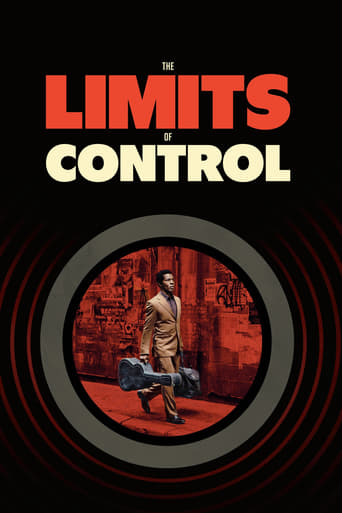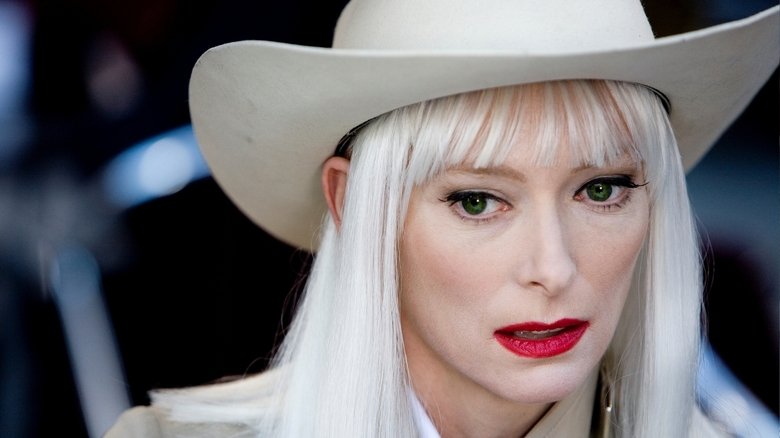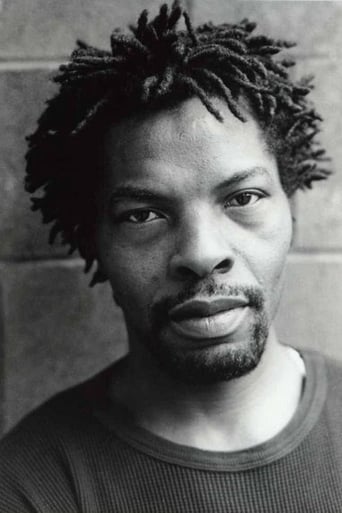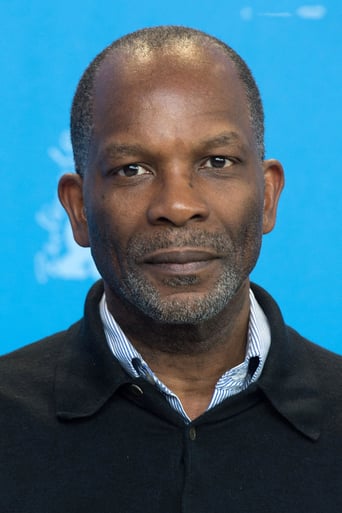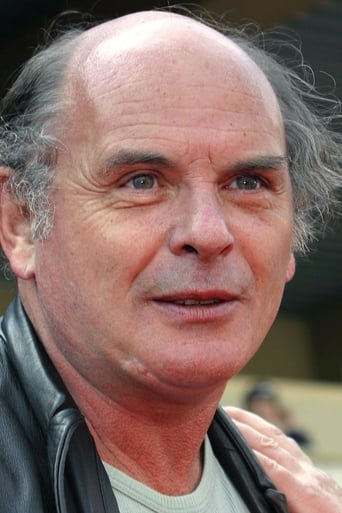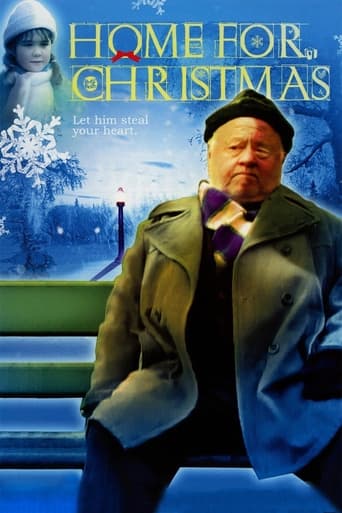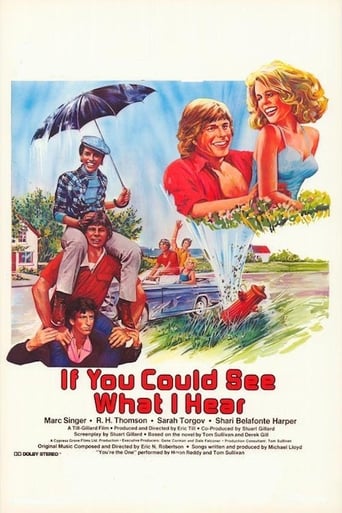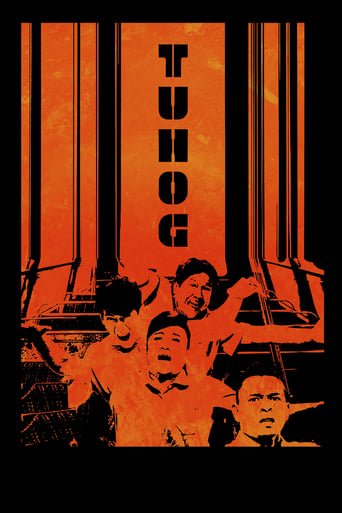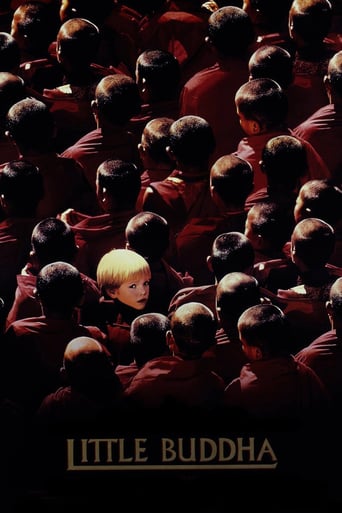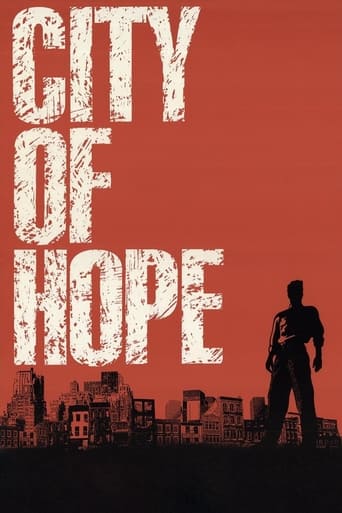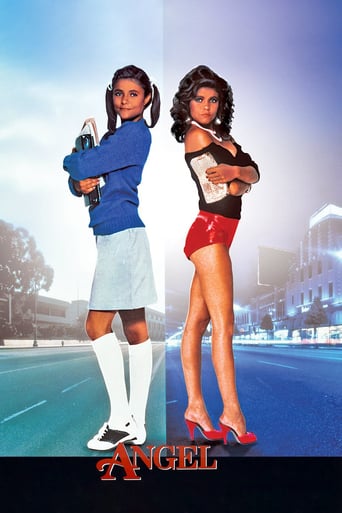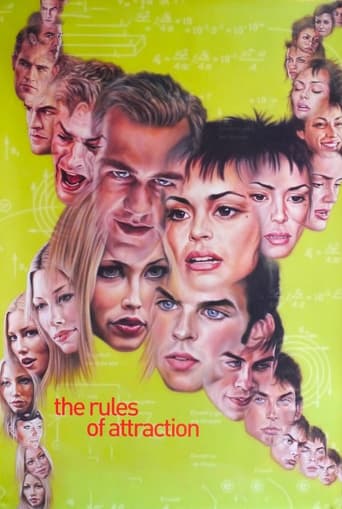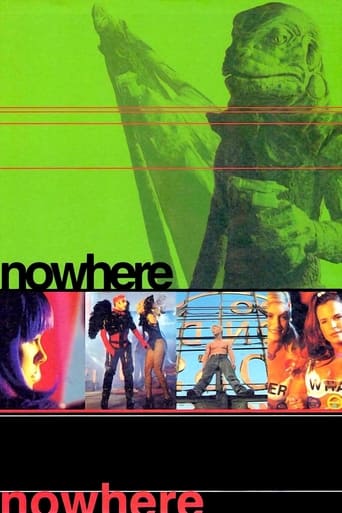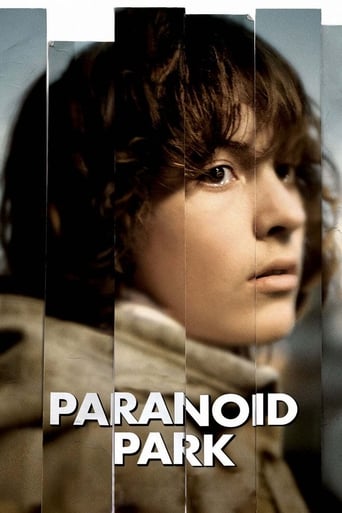The Limits of Control (2009)
A mysterious stranger works outside the law and keeps his objectives hidden, trusting no one. While his demeanor is paradoxically focused and dreamlike all at once, he embarks on a journey that not only takes him across Spain, but also through his own consciousness.
Watch Trailer
Cast


Similar titles
Reviews
Surprisingly incoherent and boring
It is a performances centric movie
i must have seen a different film!!
A movie that not only functions as a solid scarefest but a razor-sharp satire.
Jim Jarmusch's 2008 film THE LIMITS OF CONTROL concerns a nameless hit-man (Isaach De Bankole) as he prepares to carry out an assassination in Spain. It is not overtly stated that he is a professional, but his uncompromising posture, his unchanging expression and the omnipresent suitcase make it clear from the very first minutes of the film. Isaach De Bankole is perfect in this role, as he has a face that seems carved out of granite. The hit-man's few intimations of humanity are thus all the more shocking.As the film proceeds, the hit-man meets a series of individuals who send him onwards in his journey to pick up necessary equipment and finally confront his victim. These employees of his mysterious employer are left nameless, though often referred to by items they carry or other qualities: "Guitar" (John Hurt), "Blond" (Tilda Swinton), "Violin" (Luis Tosar), "Mexican" (Gael García Bernal), and "Molecules" (Youki Kudoh). In engaging the assassin in conversation to subtly convey their messages, they end up delivering eccentric monologues. Many critics lambasted these lines as so much metaphysical babble. In fact, everything said relates very directly to the plot, but this is the sort of film that demands a second viewing to really tie everything together, and those who fail to be intrigued enough on the first viewing to go on to a second may find this film a failure.Though Jarmusch alludes to America under the Bush administration at points, this is ultimately a psychological drama: the hit-man's task and contacts represent only parts of his own psyche. While some have tried to view this as a simple Freudian struggle between the id, ego, and superego, I feel that Jarmusch is aiming for something more subtle, something that he has great difficult putting into words and, even with his best efforts, this film can only hint at. THE LIMITS OF CONTROL feels like a cinematic analogue to the late albums of Scott Walker, where the songs' characters, cultural references and "plot" only serve to express some burning flame in the artist's own psyche.Jim Jarmusch has always stated that his aesthetic is to absorb everything he can from prior films (and books, music, etc.) and let those inspirations reflect in his own films. THE LIMITS OF CONTROL abounds with references to the film canon: Jean-Pierre Melville (namely "Le Samouraï"), Orson Welles ("The Lady from Shanghai"), Alfred Hitchcock, Aki Kaurismäki ("Le Vie de Bohème"), Alejandro Jodorowsky (that auteur's entire trippy aesthetic), and probably more that I just didn't recognize.The film's lack of conventional interaction between characters and the compilation of references ultimately makes THE LIMITS OF CONTROL feel relatively cold and lifeless compared to Jarmusch's many other films. Still, the visuals of the film make it a worthwhile experience in spite of its flaws. With Christopher Doyle, funny enough, working the camera, we get a number of beautifully composed shots that will prove memorable.
I've seen a lot of movies and this one will rate at the bottom. Just in the past 3 weeks I've seen 4 Jarmusch films, after I saw Dean Man. My fellow reviewers obviously saw something I didn't. NOTHING happens! I love film noir, this isn't. This is........nothing really. See Dead Man for sure, Broken Flowers yes, Stranger than Paradise was....interesting, Down by Law was.....OK.Ghost Dog was interesting as well, all of these movies are WAY off the beaten track but that's fine, these are the movies I gravitate toward. Coffee and Cigarettes is next on my list, I will not let Limits of Control deter me.
A posh dressed paid killer (Isaach De Bankolé) is assigned to fulfill a mission which has to be done in Spain. The protagonist sets off for this country, rambles around and by contacting ensuing messengers he gets closer and closer to his destination The latest film by Jim Jarmusch is one of the most enigmatic efforts he has ever done. This virtually plot less entry in the carrier of Jarmusch aroused a lot of controversy and it was criticized for a little number of conversations as well as was claimed to be pretentious and lacking a coherent story. It isn't difficult to comprehend why it was disliked by the majority of cinephiles since Limits of Control won't be an easy viewing for many. Jim Jarmusch, instead of exploiting a conventional storytelling, provides us with a work of art which defamiliarizes us with the whole plot and pushes it to the backseat, thus one is forced to observe what is going on without any previous foreshadowing and this is how one is introduced to the second meaning of the tale – exploration of reality. "Nothing is true. Everything is imagined" utters one of the messengers. In this way, Jarmusch argues that even though we behold and understand what takes place around us, it cannot be considered to be a truth forasmuch it is filtered by our mentality which is subjective hence possibly contradictory with the reality. Everybody can deem the same occurrence in disparate, sometimes phony, ways. In the flick, there is a great deal of details which might indicate something or simply nothing. At one point, the nameless main hero spots a helicopter in the sky. There is a close-up on the object which later perishes. One never knows if it is anything significant and will have an impact on protagonist's actions in the future, but when this event repeats, it occurs to a viewer that it is somehow connected with the hit-man's mission. Also, the recurring motif of an art exposition which the killer attends seems to be something more than just a fascination with an aesthetic beauty of paintings as the camera punctuates some elements in the images as though somebody was peering at them in a specific manner. In addition to this, the moment the assassin faces his contacts each of them pronounces a short monologue which displays their views on what is life and reality for them, seen through a prism of art – music, films et cetera. At the end, the antagonist turns up. He is a shady persona stultifying modern culture for being adjusted to contemporaneous society and creating a false vision of the world. He clarifies the killer that he doesn't know how everything is governed and by eliminating him, nothing is going to be altered.The minimalistic structure derives from the fascination of Jarmusch with works of culture which he hasn't explored yet. To articulate it, he utilizes possibly the most conventional storyline handled in the most unconventional manner – remarkable and bizarre to the extension that we hardly get to know anything about the movie. The director finds this aspect as something affecting and more stimulating than just transforming the entire concept into a generic actioner. Besides, he includes dozens of existential notions which provide the film with utterly different aims. The thriller synopsis is just a premise as well as a device to express an existential malaise and a resolution for it. It shouldn't be a viewer's aim to fill the holes in the plot which we never get to know – they simply don't matter.The rendition is exquisite, it crackles with artistic stylization and even though it is an austere flick, there is a lot to take delight in. Eerie, sun-soaked streets of Spanish towns are gorgeously photographed by Christopher Doyle, adding to the climax Mediterranean flavour. It frequently looks like a documentary, apart from several slightly illusory scenes at the onset as well as a gracious number of tracking shots in the midst. It sometimes feels as though a viewer was following the protagonist which is compounded by some voyeuristic photography. The camera-work is stable and only in more exciting moments, it begins to shake as if it was influenced by upended protagonist's nirvana. Jarmusch also supplies a little oneiric slow-motion sequences when messengers meet the killer.It is disputable whether a flick like this is something successful, notwithstanding, it appears that Jarmusch achieved his aim. It is difficult to scrutinise it from standard perspectives of filmmaking since it is an entirely different work. It's a creation of an absolute coolness, coldness and ultra-minimalism which disregards the typical rules of narration. Criticizing Limits of Control for incoherency is a bit unconstructive forasmuch it isn't focusing on the plot for sake of exposing its real value – analysis of human perception of reality and retaining the internal balance in the modern world. Limits of Control lacks a quirky sense of humour, very typical for Jarmusch and the ascetic framing without any comedic relieves might be overwhelming for some. On the other hand, however, expecting a fast paced movie from the creator of Broken Flowers and Stranger than Paradise is like looking for some snow in the desert. Regardless of this, Limits of Control is bound not to find a wide audience. If one doesn't care about its existential notions, opulent stylization and visual beauty, the movie won't work, its texture will appear excessively austere. Nevertheless, Jarmusch should be praised for this little experiment which gives American film industry some variety and charm which is frequently swept away by countless and mindless spectacular productions, filled with crowd-pleasing action, tasteless themes and artistic kitsch.
A film about nothing that keeps you on the edge of your seat; gotta be worth a watch? A man on a mission, full of purpose.A series of secret messages.A small section of a much larger picture that we are lucky enough to be able to view.If you are sick of the predictability of films in the present day - and have that 'Generic/clairvoyant' ability to second guess every other action in a film, then this is for you.It WILL fool you, but you may fall in love with it for that.A worthy watch, but an opinion splitting flick.Regardless - it gets my vote.8/10 Seano Out!

